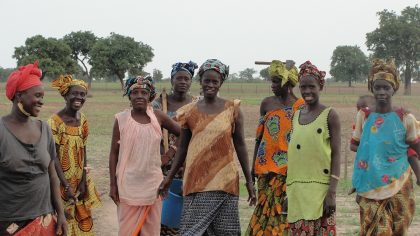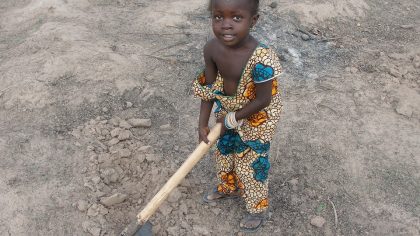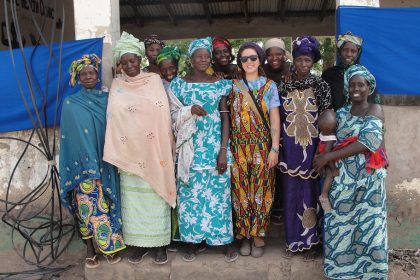 Location
Location
Bati Njol, Niamina East District, Central River Region (South), The Gambia
Community Description
The village of Bati Njol is a “Fana Fana” community, meaning it is a traditional Wolof village. It is an up-country bush village, with over 2,500 people.
Most citizens of Bati Njol are farmers. The women spend time in small, personal gardens and sell fruits/vegetables while the men tend to the livestock and fields. The people are of the Sufi-Muslim faith and are conservative in their beliefs.
A health school was started for the women of Bati Njol, in which they spent over 6-months learning about proper personal hygiene, preventing illnesses, nutrition, first aid, reproductive & child health, environmental sanitation & malaria prevention.
 Following the “semester” of health school, a project was proposed to have a women’s garden led by the students who were enrolled in the school for the past 6-months. The women have undertaken the construction of the garden, just outside the village, accessible for all to come and help.
Following the “semester” of health school, a project was proposed to have a women’s garden led by the students who were enrolled in the school for the past 6-months. The women have undertaken the construction of the garden, just outside the village, accessible for all to come and help.
Steps have already been taken in the progression of the garden. These include the construction of the fence, using local materials found in the surrounding bush area. Also, the women have been raising money for the purchase of seeds to begin the garden. The land was given by the village leader “the Alkali” who is in full support of the garden. Plots will be given to each woman.
Water will not be a problem in the months of June – October, but once the rainy season is over the women will not have a means of sustaining the watering of the vegetables. Thus it was determined that a series of wells will be needed to provide for watering.
Project Description
This project is to build 3 community wells for the irrigation of the women’s garden.
 The women have been clearing the land in the area, which measures 35 meters by 60 meters. The wells will be located so that each plot will be less than 20-meters from the source of water.
The women have been clearing the land in the area, which measures 35 meters by 60 meters. The wells will be located so that each plot will be less than 20-meters from the source of water.
The water will be drawn by hand using buckets, allowing 4 women to pull water simultaneously from each well, and the crops will be watered by hand. Although the water is assumed potable, these wells will be used mainly for watering the plots.
The wells will be hand dug to a diameter of 1.25 meters. The water table is approximately 12-meters down. The digging will be done by a small team of 3 or 4 men from the village.
Any extra labor will be provided by the village. All tools necessary for the digging is provided by the team of builders.
No covers or lining will be necessary at this time, as the water will not be consumed. However, each well will have a “lip” at ground level, for safety and practicality.
Water Charity funds will be used to pay for the labor and purchase the materials, including cement and rope.
Project Impact
Over 2,500 people will benefit from the garden, including the 40 women tending to the garden, their families, and the entire village.
Peace Corps Volunteer Directing Project
Shawn Reed
Comments
The addition of a women’s garden will enhance the nutrition of the entire village, including men, women & children. Also, it will provide for better food security, adding variety to the food bowl and allowing access to more vegetables in the local market.
Dollar Amount of Project
$555.00
Donations Collected to Date
$555.00 + additional funds for future projects.
Dollar Amount Needed
$0.00 – This project has been fully funded through the generosity of Dr. Nancy Thaler Gabbert, with additional funds for future projects from friends and family of Peace Corps Volunteer Shawn Reed.
The project is hereby named the LOLABETTY GARDEN.
We encourage others to continue to donate using the Donate button below, and we will notify Shawn of your donation. Additional funds will be used to fund the next project by Shawn and/or those of other PCVs in the country of service.
![]()
This project has been finished. To read about the conclusion of the project, CLICK HERE.